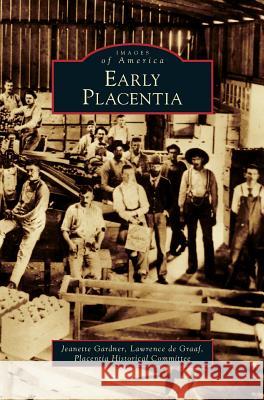Early Placentia » książka
Early Placentia
ISBN-13: 9781531628871 / Angielski / Twarda / 2007 / 130 str.
Today Placentia is part of the vast suburban Orange County sprawl that extends eastward from Los Angeles into Southern California's "Inland Empire." This landscape of homes and shopping centers was a windswept wilderness until a Mexican land grant helped transform it into ranches that dry-farmed hay and irrigated fruits and vegetables. The arrival of the Valencia orange and the discovery of oil reshaped the future of Placentia again as groves and derricks covered the land in the first half of the 20th century. The railroad also arrived, followed by more oil discovery to the east and the coming of laborers of Mexican heritage, who formed a community to the south. Schools, churches, and civic buildings remained ancillary to the predominantly agrarian society and economy that existed through the World War II era.
Today Placentia is part of the vast suburban Orange County sprawl that extends eastward from Los Angeles into Southern Californias "Inland Empire." This landscape of homes and shopping centers was a windswept wilderness until a Mexican land grant helped transform it into ranches that dry-farmed hay and irrigated fruits and vegetables. The arrival of the Valencia orange and the discovery of oil reshaped the future of Placentia again as groves and derricks covered the land in the first half of the 20th century. The railroad also arrived, followed by more oil discovery to the east and the coming of laborers of Mexican heritage, who formed a community to the south. Schools, churches, and civic buildings remained ancillary to the predominantly agrarian society and economy that existed through the World War II era.











